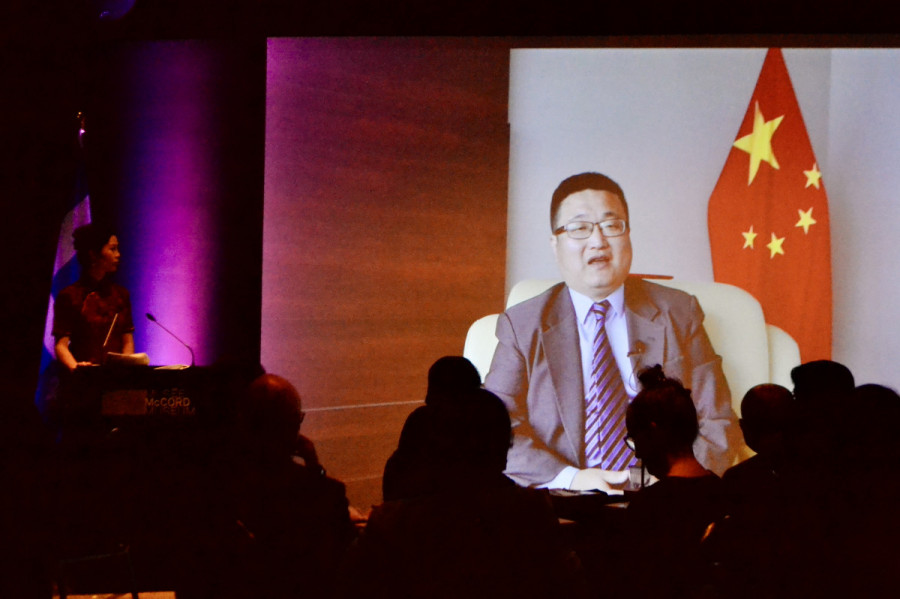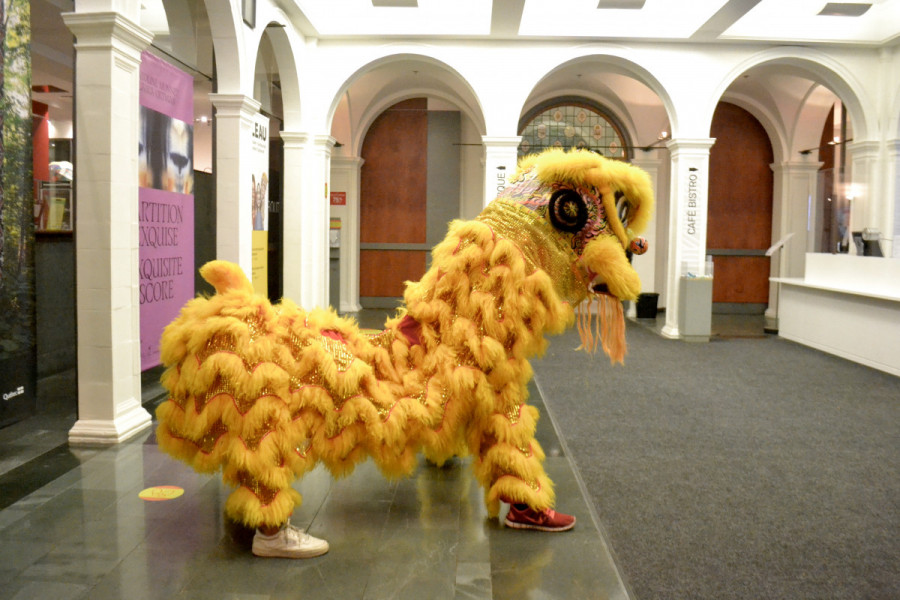The Canada China International Film Festival is back for a hybrid sixth edition
The festival embraces culture through the art of cinema
Canada China International Film Festival’s sixth edition is bringing live cinema back with the aim to help build a cultural bridge between Canadian and Chinese arts. Curated Canadian and Chinese films will be brought to Montrealers online and in-person from Oct. 22 to Nov. 30.
For the past six years the CCIFF has been communicating cultural diversity through cinema at their annual fall screenings. The festival consists of a diverse range of films made in Canada and China.
There are many categories, to which one can submit their own film, including short films, full-length films, television series, and student made films. Fifteen awards will be given to the winning films. Online films are free for everyone to watch on the Smart Cinema US app until Nov. 30.
The four in-person films presented will go alongside speeches from the filmmakers, actors and government officials. Film screenings are taking place in Montreal, Toronto and Vancouver. In past years, films have also been screened in China, though not this year, due to COVID-19 restrictions.
“It is a film festival, but it’s also about dialogue between the two cultures through art, so new media is a big part of it,” said Yanis Mohamed, CCIFF’s entrepreneur and media marketer.
The festival has been organized and sponsored with the help of Canada China Art Tech, an artistic, technology innovative company. At the opening event, this past Friday, Oct. 22., four VR films were shown, including 360 films and interactive ones. The grand opening also featured performance artists, musicians and dancers. Roger Sinha, a dancer using projection technology that has been developed by Canada China art tech, performed during the opening.
Read more: ‘Never Let the (Dis)Course Settle’ is an exhibit in your hands
Read more: PHI Centre’s latest VR installation allows visitors to find their breath among the sequoia trees

“This film festival is combined with theatre and technology, it’s really interesting, and I feel like the future is really broad,” Xinkun Dai said.
Dai is a filmmaker, video editor and director of media for the CCIFF. One of her films premiered in the festival’s second edition, and she has been working in the CCIFF since their start in 2016. She mentioned that the film festival’s importance has grown in an unusual way, which has been echoed by other CCIFF members.
“I think beyond politics, [...] [the CCIFF] establishes a cultural bridge between the two countries, so the two countries and cultures get to know each other better,” Mohamed said. “All the comments are always extremely positive, but this year, we were starting to notice a few, I would say angry comments, and things that are a little disrespectful. So, I think a little open dialog between the countries is important now.”
“It is a film festival, but it’s also about dialogue between the two cultures through art.” — Yanis Mohamed
One of the featured documentaries in the CCIFF this year is Saving Chinatown by Jimmy Chan. It covers problems of gentrification and racism in Montreal’s Chinatown. Chan is deeply involved in supporting Chinatown’s community. During the pandemic, Chan supplied and organized a voluntary security team to protect Chinatown from an increase in hate crimes during the pandemic. He also gave free meals to those in need from his restaurant, Wok Cafe.
“We all have to learn about each other’s culture, to respect other people’s culture, where they came from. It doesn’t matter what colour they are, what ethnic background they are, we have to respect who they are. Before anybody [makes] any judgment, the judgment is actually on yourself, you’ve got to do the right thing, to be respectful,” Chan said. “So this is what the documentary is about. [...] This documentary, I’m very happy to say, it’s changed people’s lives.”
He hopes to show people the realities of Montreal’s Chinatown, and converse its history. “A lot of [people interviewed] told me that my documentary actually created a platform for them to share their story to the world, and they felt so much better that they released [the weight] on their shoulders that they were carrying all their life, and now it’s gone,” Chan said.
Currently underway, this year’s CCIFF hopes to strengthen the bond between Canada and China, as well as celebrate art and culture, with the many films they’ve made available to the public.






3_600_375_90_s_c1.jpg)
web_600_375_90_s_c1.jpg)